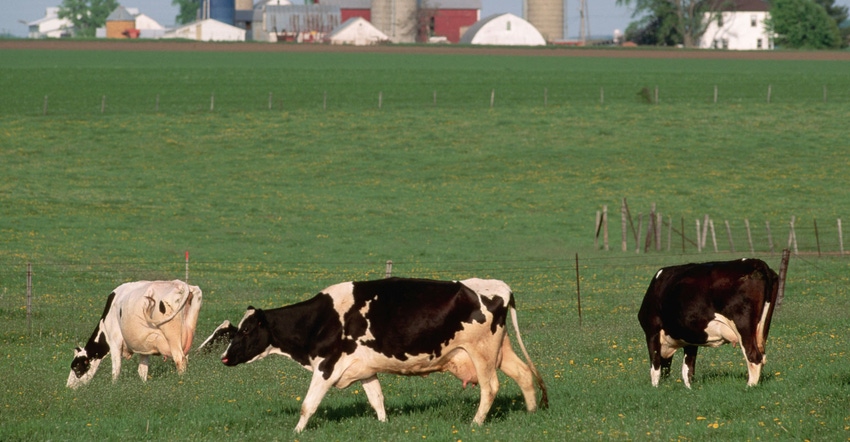November 9, 2020

The Dairy Together campaign unveiled a short film that shares a vision for thriving rural communities, an equitable food system and a resilient family farm economy. Supply Management and How It Can Save Our Rural Economy premiered during a virtual event that drew 100 attendees and featured a panel of Wisconsin dairy farmers.
The eight-minute film explains how overproduction depresses prices. Farmers often respond by seeking ever-greater efficiencies to produce more food, which in turn floods the market more, drives prices down further and creates a cycle of farm loss.
“There are a lot of misconceptions floating around about supply management, but this film dispels the myths and provides an opportunity to see the big picture,” says Wisconsin Farmers Union President Darin Von Ruden, a dairy farmer from Westby, Wis.
Spearheaded by WFU with support from groups across the U.S., Dairy Together is educating farmers, eaters and lawmakers about how supply management can create a viable dairy economy.
Panelists for the premiere included WFU members and Wisconsin farmers Brittany Olson, Chetek; Patty Edelburg, Amherst; and Tina Hinchley, Cambridge.
Edelburg, vice president of the National Farmers Union, calls for implementation of supply management as a tool that could keep family farmers on the land, noting, “Even a small change in milk production can shift prices. It’s a system that has made farmers price-takers instead of price-makers, and that needs to change.”
The Portage County farmer also notes the links between a strong farm economy and rural communities. “I grew up in a small town that had a grocery store, a bank, a gas station, surrounded by family farms. There’s nothing left,” she says. “The farmers went, one by one; then the businesses closed. We need to embrace change to keep our communities viable.”
Olson milks 40 cows on a fifth-generation farm in Barron County. “We’re at a pretty pivotal point in our industry history, where we could embrace supply management, or go the way of poultry and hogs and become totally vertically integrated,” she says.
Hinchley, who milks 230 cows on her family’s Dane County dairy farm, cites some of the special interests that have made it difficult to ramp up support for supply management. “There are over 400 processing plants in Wisconsin. That’s one of the big reasons we are America’s Dairyland, but they’ve been living off of low milk prices for quite a while,” she says. “We need to see more of that profit trickle down to the farmers.”
Viable alternative
Bobbi Wilson, WFU policy and special projects coordinator who moderated the event, says low prices have made farmers more dependent on government subsidies. Supply management could significantly reduce government expenditures, curb farm loss and stabilize prices, as evidenced by research compiled by dairy economists Mark Stephenson and Chuck Nicholson.
“We know now that had Congress adopted supply management in 2014, we very well could have avoided the dairy crisis that still continues to this day,” Wilson says. “Perhaps a small silver lining is that we can see the consequences of political inaction, and that has spurred a renewed interest in supply management. It has proven to a lot of farmers and dairy stakeholders that we are at risk of losing the majority of our dairy farms if Congress fails to make major changes to federal dairy policy once again.”
View the video and learn more about how you can get involved with Dairy Together at dairytogether.com.
Source: Wisconsin Farmers Union, which is solely responsible for the information provided and is wholly owned by the source. Informa Business Media and all its subsidiaries are not responsible for any of the content contained in this information asset.
You May Also Like




